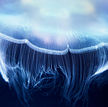Finding My Voice
- Dheepa

- Jun 3, 2022
- 7 min read

The Hand.
My grandfather was the sort who used phrases like "the sword of Damocles" and "throw down the gauntlet" in casual conversation with me, immediately propelling my twelve-year-old self to the dictionary for explanations.
Back then, I already knew of his reputation as a public speaker of exceptional eloquence—one who could spin tales in multiple languages and conjure up quotations extemporaneously.
Some years ago, my father shared a new story with me—not a part of family lore, but rather, related by a former colleague paying his last respects. The colleague had witnessed these events one afternoon in the late 1930s, when my grandfather, an attorney in colonial India, was arguing a civil case.
The presiding judge, an Englishman, disagreed with his position—vehemently—and sent the bailiff to the court library for a volume of laws. After consulting the appropriate statute, though, the judge discovered to his chagrin that my grandfather's position was not only accurate, it had been quoted verbatim—and from memory.
Enraged, the judge flung the book across the room and shouted, “So be it!”
The courtroom froze. After a long moment, the bailiff scurried to retrieve the volume.
My grandfather wouldn't allow it.
Holding up an imperious hand to halt the bailiff, he turned and addressed the judge. I can imagine my grandfather's voice—the accent, slightly British, and the tone, utterly fearless—projecting to all four corners of the courtroom.
"No. The hand that threw the book must now retrieve it."

The Legacy
When my father told me that story, he also presented me with one of my grandfather's college medals, a bronze disc stamped in capital letters: ORATORY. As I examined it, it seemed like the story and the medal were an intertwined family heirloom—a statement about my paternal legacy.
After all, my father inherited the same abilities. With similar resonance and multilingual dexterity, my father can elucidate the most complex of concepts, weaving in folklore and mythology and calling up poetic references for his riveted audience. What's more—he can do so for one minute or one hour, in front of ten people or ten thousand, with nary a notecard for guidance.
While I find my grandfather's and father's oratorical skill (not to mention their talent for on-the-spot delivery) jaw-dropping, I am even more awed at what underlies those qualities—a fusion of inner knowingness and spun-steel courage.
At the time my grandfather halted the bailiff and directed the judge to pick up the thrown book, India was under British colonial rule—an era of terror and subjugation during which Indian citizens were jailed, even killed, for opposing officials in power. Nevertheless, my grandfather would not brook the judge's indecorum and engaged in an interaction with a potentially disastrous outcome for a family man like him.
Talk about speaking truth to power.
(You're likely wondering what happened next. By luck, human decency prevailed—the judge apologized, retrieved the book, and, in a stereotypically British move, calmly invited my grandfather to tea.)
My father's own circumstances were harrowing at times. As an immigrant at the tail end of the American civil rights movement, he received threatening letters, was ordered out of restaurants, and experienced markedly unfair workplaces. Unfailingly, he spoke up to challenge and correct inequities, once even leading a strike for fair wages. To this day, he is vocal and forthright about the principles he holds dear.
The Tidal Wave
From time to time, I took that oratory medal out of my desk and placed it on my palm. Though not particularly large, its weight and heft felt substantial to me—it made me wonder how on earth to live up to such a legacy.
After all, whenever I had to speak, for school or competitions or work, I needed prep time. Lots of it. I needed notes—detailed ones. I needed space to dig for the right words, to shape the most fitting phrases, to analyze and restructure and revise.
And I needed practice.
When put on the spot in those scenarios—when asked for my opinion of an action or my position on an issue—my voice stumbled. My throat caught. I felt an unbearable urge to cough.
Most times, I managed to muddle through, but other times, I sensed a tidal wave rolling toward me. First, I felt heat break over my face; then, I heard a ringing in my ears; and then, I was all alone in a blinding white swell, a deer in headlights.
I often wondered (read: kicked myself) about those frozen moments, particularly because I didn't face the difficulties my father and grandfather did. Whatever capacity allowed them to speak freely and firmly, even in alarming scenarios, I didn't seem to possess.

Why, in the moments that authenticity and honesty were most called for, did my voice disappear?
As I looked for answers, I considered yogic philosophy, which maps the various energy centers in the body. The throat center, called vishuddhi in Sanskrit, governs the body's communication mechanisms. When in balance, it allows smooth, creative, and candid expression.
However, when that center is blocked, self-expression is also blocked. The courage to speak one's truth fades, as does one's ability to communicate openly, defend opinions, and converse in uncomfortable situations. One's voice, rather than projecting out, shuts down.
Sound familiar?
Over time, I tried to concoct some explanations: I didn't have the right words. I didn't want to rock the boat. I didn't want to cause others pain. I didn't want to exacerbate a disagreeable situation. But underneath those concoctions, I could hear shame whispering: What if it's cowardice?
I wondered that until a few years ago, when a woman screamed obscenities at me in Santa Cruz, California.

The Splinter
That day, I'd been walking the Santa Cruz coast, taking in the bright sun and blue water and crashing waves. After a few hours, I pulled out my phone for directions to a nearby state park, then heard a prolonged horn blast and an enraged shriek from the open window of a car:
"Put down your %?&$ phone! Look at the %?&$ view!"
(I suspect this sort of admonishment could only occur in California.)
I opened my mouth to speak, but couldn't.
I was frozen.
There are moments in life that lengthen and widen, and for me, this was one of them. My whole psychological landscape unfurled all around me. I felt I was watching my open-mouthed self stare at the outraged woman.
And in that moment, I knew one thing for sure. I wasn't afraid of this weirdly abusive proponent of nature and opponent of tech excess. I didn't care what she thought.
So, why was I frozen?
That's when I felt it in my body—a splinter deep within, calling for my attention, aching to be examined and faced. And when I faced it, I realized:
I did care what she thought of me.
I wanted to look her in the eye and defend myself. I wanted to convince her that I, too, understood the value of a sunlit day on the shore—that I, too, understood the importance of limiting my phone usage and experiencing the present moment.
Then, I dug deeper, continuing to look for that splinter, closing in on it.
I wanted her to like me.
And then I found it.
I wanted her to love me.
It didn't matter what my intellect knew—that I'd never see this woman again, that no one can be loved by everyone, that the opinions of others shouldn't impact our lives. The splinter I'd found and extracted showed me what I was truly craving, deep down: I wanted everyone to love me.
It was painful and embarrassing to witness this in myself, but at last, I understood why I'd frozen—this time and all the times before. And from now on, I could supply myself with what I needed—a combination of self-acceptance and self-love that had been lacking. I could begin to heal.
The Speech.
About six years ago, I made a commitment to prioritize my creative writing. At that time, I didn't know that the lessons of my writing journey would interweave profoundly with the lessons of my life journey—that both paths would inform and illuminate each other.
Though my progress has been slow, I believe that regularly writing—and sharing my writing—has made me braver, more willing to move closer and closer to my own truth via my words on the page. I've learned to placate less, risk more, and strive for deeper honesty. I am edging my way forward.
From my heart, I thank you readers who have communicated with me. You've encouraged me by sharing from your own lives, by demonstrating the beauty and value of engaging vulnerably in truthful conversations. I'm proud that we are all showing up to these interactions with the willingness to accept responsibility for our own growth and development as human beings.
Next month, during a speaking engagement, I'll cross the bridge again, from writing my thoughts to speaking those thoughts—but this time with self-knowledge, with my splinter extracted, with healing underway. I plan to share some of the most difficult challenges of my personal writing journey, specifically with regard to rejection and failure.

As I speak, I will try to draw from my paternal legacy. My voice may not project or captivate the audience in the same way. I certainly won't have threats of harm hanging over me. My words may not possess the same eloquence. Nevertheless, I resolve to delve into my own knowingness and to share it as courageously as I can—just as my father and grandfather did.
Of course, sometimes I still wish their legacy manifested within me in the same bold and dramatic manner. But during those times, I remind myself of my mother's words when I was growing up, reassuring me that my own gifts were worthy and would emerge when and how they were supposed to. I visualize her words as a vine of fragrant jasmine, a maternal legacy interlacing with the paternal.
My mother passed away a little less than a year ago. Since then, she's been in the background of my dreams at night, her presence as gentle as it was in life. Each time I reach for her, though, she evanesces.
However, a few months ago, I had a different sort of dream. My mother stood before me, not in shadow, but in light—her outlines crisp, her body solid. Emanating from her was the strength that had always co-existed with her gentleness.
I recognized the look in her eyes—the one that assured me that she really saw me, that she was a loving witness to my life. Eagerly, I waited for her words, and at last they came:
"Speak," she urged. "Speak. I want to hear you."






















































Beautiful article Dheepa. Look forward to continuing to listen to your voice and reading your book!
Your voice will project and captivate the audience in the same way.
Your words will possess the same eloquence.
You will delve into your own knowingness and share it courageously—just as your father and grandfather…
and your mother still does.
Go forth in strength and enjoy as we will enjoy you!
(Thank you so much for bravely sharing your journey)
Dheepa, What a great article! Your thoughts have been beautifully expressed. On several occasions I had the opportunity to chat with your grandfather. I always enjoyed his knowledge and kindness. Your dad was my classmate in 1960 and since then we have been great friends. He spoke during our graduation and I still remember the words he uttered, so powerful. He has always stood for his principles. Your mother was a very kind person. You are the embodiment and extension of your grandfather, father and mother. I wish you great success in your writings!
Dheepa, this piece spoke to me and I’m sure many others can relate as well. Having considered you, your parents and grandparents as my own family, I enjoyed it even more. So inspiring to see you pursuing your lifelong passion!
Simply beautiful Dheepa!